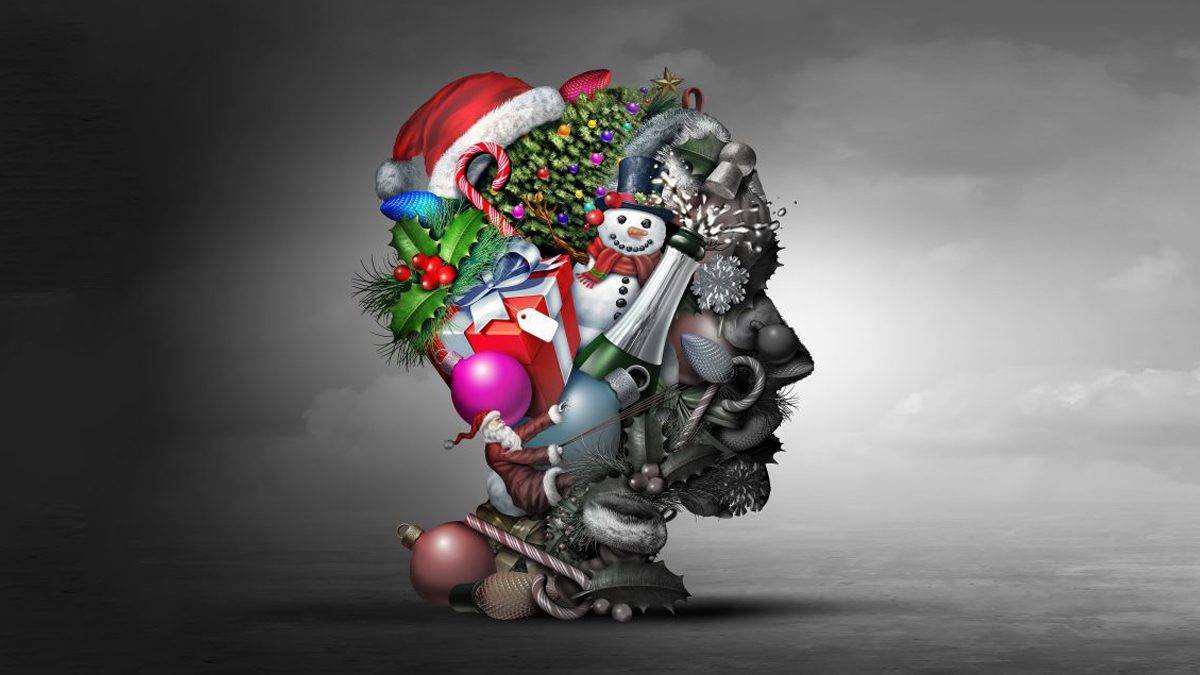The stress of the holidays triggers sadness and depression for many people. This time of year is especially difficult because there’s an expectation of feeling merry and generous. People compare their emotions to what they assume others are experiencing or what they’re supposed to feel and then think that they alone fall short. They judge themselves and feel like an outsider. There’re a host of things that add to stress and difficult emotions during the holidays.
Darlene Lancer, JD, LMFT is a marriage and family therapist. She is a relationship expert and author of “Codependency for Dummies” and “Conquering Codependency and Shame: 8 Steps to Freeing the True You,” as well as five ebooks. She has worked extensively in the field of addiction and codependency. Her work is informed by training in Self-Psychology, Voice-Dialogue, Dream Analysis, Jungian Therapy, Psychoanalytic Psychotherapy, Somatic Work, EFT, and Hypnosis. She has also previously supervised other therapists as an AAMFT Approved Supervisor and practiced law as an entertainment attorney.
• Finances. Not enough money or the fear of not having enough to buy gifts leads to sadness and guilt. The stress of financial hardship during this economic downturn is often compounded by shame. When you can’t afford to celebrate it can feel devastating.
• Stress. The stress of shopping and planning family dinners when you’re already overworked and tired.
• Loneliness. A whopping 43 percent of Americans are single, and 27 percent of Americans live alone. When others are with their families, it can be very painful for those who are alone. Seventeen percent of singles are over 65, when health, age, and mobility can make it more difficult to enjoy yourself.
• Grief. Missing a deceased loved one who won’t be joining you. Seniors have more reasons to grieve.
• Estrangement. When you’re not speaking to a relative, a family get-together can usher in feelings of sadness, guilt, resentment, or inner conflict about whether to communicate.
• Divorce. If you’re newly divorced, the holidays may remind you of happier times and accentuate your grief. It’s especially difficult for adult children of divorce who have to balance seeing two sets of parents. The stress is multiplied for married children who have three or even four sets of parents to visit.
• Pleasing. Trying to please all of your relatives – deciding what to get, whom to see, and what to do – can make you feel guilty and not enough, which leads to depression.
• SAD. Many people experience the blues during gloomy weather due to decreased sunlight, called Seasonal Affective Disorder (SAD).
Much of the planning, shopping, and cooking is done by women, so they carry the greater burden in preparing for family gatherings. Women are at greater risk for depression than men. They’re twice as likely to experience depression. After heart disease, depression is the most debilitating illness for women, while it’s tenth for men. To read more on this, see Depression in Women.
Some measures you can take to cope with the holiday blues include:
• Make plans in advance, so you know how and with whom your holidays will be spent. Uncertainty and putting off decision-making add enormous stress.
• Shop early and allow time to wrap and mail packages to avoid the shopping crunch.
• Ask for help from your family and children. Women tend to think they have to do everything when a team effort can be more fun.
• Shame prevents people from being open about gift-giving when they can’t afford it. Instead of struggling to buy a gift, let your loved ones know how much you care and would like to, but can’t afford it. That intimate moment will relieve your stress and nourish you both.
• Don’t allow perfectionism to wear you down. Remember it’s being together and goodwill that matters.
• Make time to rest and rejuvenate even amidst the pressure of getting things done. This will give you more energy.
• Spend time alone to reflect and grieve, if necessary. Pushing down feelings leads to depression. Let yourself feel. Then do something nice for yourself and socialize.
• Don’t isolate. Reach out to others who also may be lonely. If you don’t have someone to be with, volunteer to help those in need. It can be very uplifting and gratifying.
The signs of depression are feelings of sadness, worthlessness, and/or guilt, crying, loss of interest in usual activities, fatigue, difficulty concentrating, irritability, social withdrawal, and changes in sleep, weight, or appetite. If these symptoms are severe or continue for a few weeks, more than the holidays may be the cause. Seek professional help.

